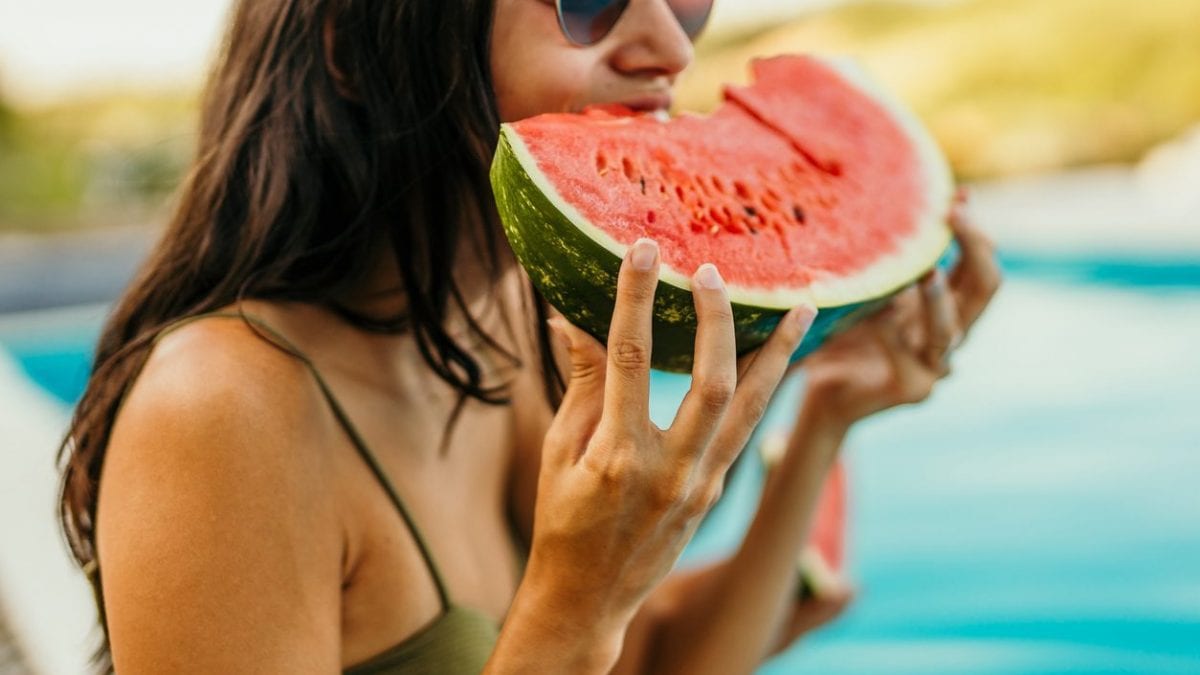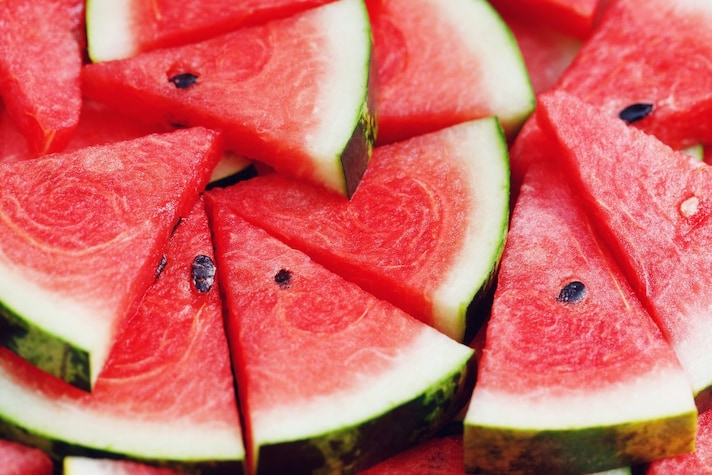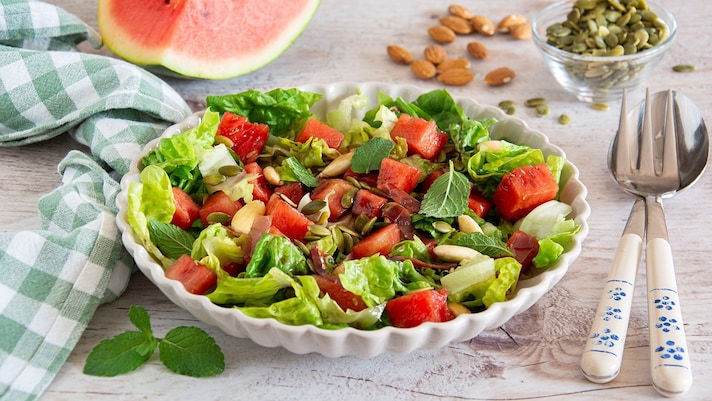
Fresh, juicy, and naturally sweet, watermelon is undoubtedly the iconic fruit of the summer season. Despite its innumerable and undisputed beneficial properties, it is often at the center of debate regarding its sugar content and the effect this can have on blood sugar levels. Is it really a fruit to fear for those watching their weight or following a low-glycemic index diet?
Can diabetics eat it, and in what quantities? Are there any functional combinations that reduce its impact? Let's clarify the issue, also debunking some false myths, with our trusted expert, biologist and nutritionist Simone Gabrielli.
The Benefits of Watermelon
One of the most beneficial summer fruits of all, watermelon is incredibly rich in water and low in calories, perfect for hydrating on hot days. Refreshing and thirst-quenching, it helps replenish the minerals and vitamins lost through sweating. An excellent source of potassium, it's ideal for athletes, especially after a workout, to relieve fatigue or drops in blood pressure due to the heat.
It also contains good amounts of vitamin C and antioxidants such as lycopene, a carotenoid responsible for the characteristic red color of its pulp, with a strong anti-inflammatory effect. Highly satiating, it also has mild laxative properties and can be useful for countering any problems with constipation, which are quite common this season.
Is The Glycemic Index of Watermelon High or Low?
Precisely because of its sweet and irresistible flavor, watermelon is often accused of being very high in sugar and causing blood sugar spikes. Is this fake news or is there a grain of truth? Let's start by saying that watermelon, just like any other fruit, contains simple sugars, specifically fructose, glucose, and sucrose: after consuming it, blood sugar levels will inevitably tend to rise.
Does watermelon have a high glycemic index? "Yes, it's true: watermelon has a high glycemic index, but—let me say once and for all—using the glycemic index as the sole criterion for evaluating whether a food is "good" or "bad" makes little sense, especially if taken alone, outside of the context of a meal," Gabrielli points out.
The glycemic index measures how quickly a food raises blood sugar, but it does not take into account the quantity actually consumed (for that there is the glycemic load, a certainly more useful parameter), nor does it take into account the fact that in real life we eat this, or other fruits, within a meal or snack, perhaps after vegetables, proteins and fats, macronutrients that naturally modulate the absorption of sugars.
Compared to other fruits , such as mandarins, grapes, bananas and figs, watermelon also boasts a very small quantity of simple sugars : we are talking about 3-5 g per 100 g of edible pulp, depending on the type.

And it doesn't end there: when we consume fresh fruit, we don't just consume sugars, but also fiber, vitamins, minerals, and water: these nutrients work synergistically with sugars, slowing their absorption and helping to keep blood sugar levels stable. "So no, it makes no sense to demonize watermelon just because of its glycemic index," concludes our expert.
Can Diabetics Eat Watermelon?
Anyone can eat watermelon, even people with diabetes, as long as it's consumed in a balanced way and served in reasonable portions. "For example, if you eat it as a dessert after a meal that includes fiber, protein, and fat, the impact on blood sugar levels will be very different than eating half a kilo on its own on an empty stomach," Gabrielli emphasizes.
But what's the ideal serving size? About 150g net of waste, but since it's one of the lowest-calorie fruits, you can even eat up to 250g. "Or, since you only have three servings of fruit a day, you can compromise and eat two servings at once: so 300g," suggests the expert.

How to Pair Watermelon At The Table
To make a fruit snack more filling and lower your glycemic index, the trick is definitely not to eat it on an empty stomach, but to pair it with a small source of protein and/or fat. The same goes for breakfast: simply pair it with some natural Greek yogurt, a drizzle of honey, and a handful of walnuts for a filling and complete morning meal.
If you don't suffer from bloating or irritable bowel syndrome, it can also be eaten at the end of a meal: if it contains all three macronutrients, it will more gently modulate sugar absorption.
The sweet, juicy and sugary pulp pairs excellently with grilled white meats, raw fish and shellfish, served as carpaccio or tartare, with local cured meats, for a variation on the classic melon and prosciutto, and with fresh cheeses such as Greek feta or goat cheese.
An original and tasty idea, which will help keep blood sugar levels more stable, could be to combine it with fresh lettuce, almonds, toasted pumpkin seeds, speck and mint leaves: a single dish to complete with a few slices of toasted wholemeal rye bread for a light and nutritious lunch.
Watermelon is, therefore, an extraordinary fruit, rich in nutrients and benefits, to be enjoyed with pleasure and used to create delicious recipes. There's no reason to fear it, and now we also have the approval of our trusted expert.
Balance isn't about a single slice of watermelon, but how we eat throughout the day, and even better, throughout the week. The important thing is to get back into the overall balance, perhaps with a more balanced meal afterwards. Because, ultimately, that's the point of a healthy diet: flexible, realistic, and worry-free.
;Resize,width=767;)
